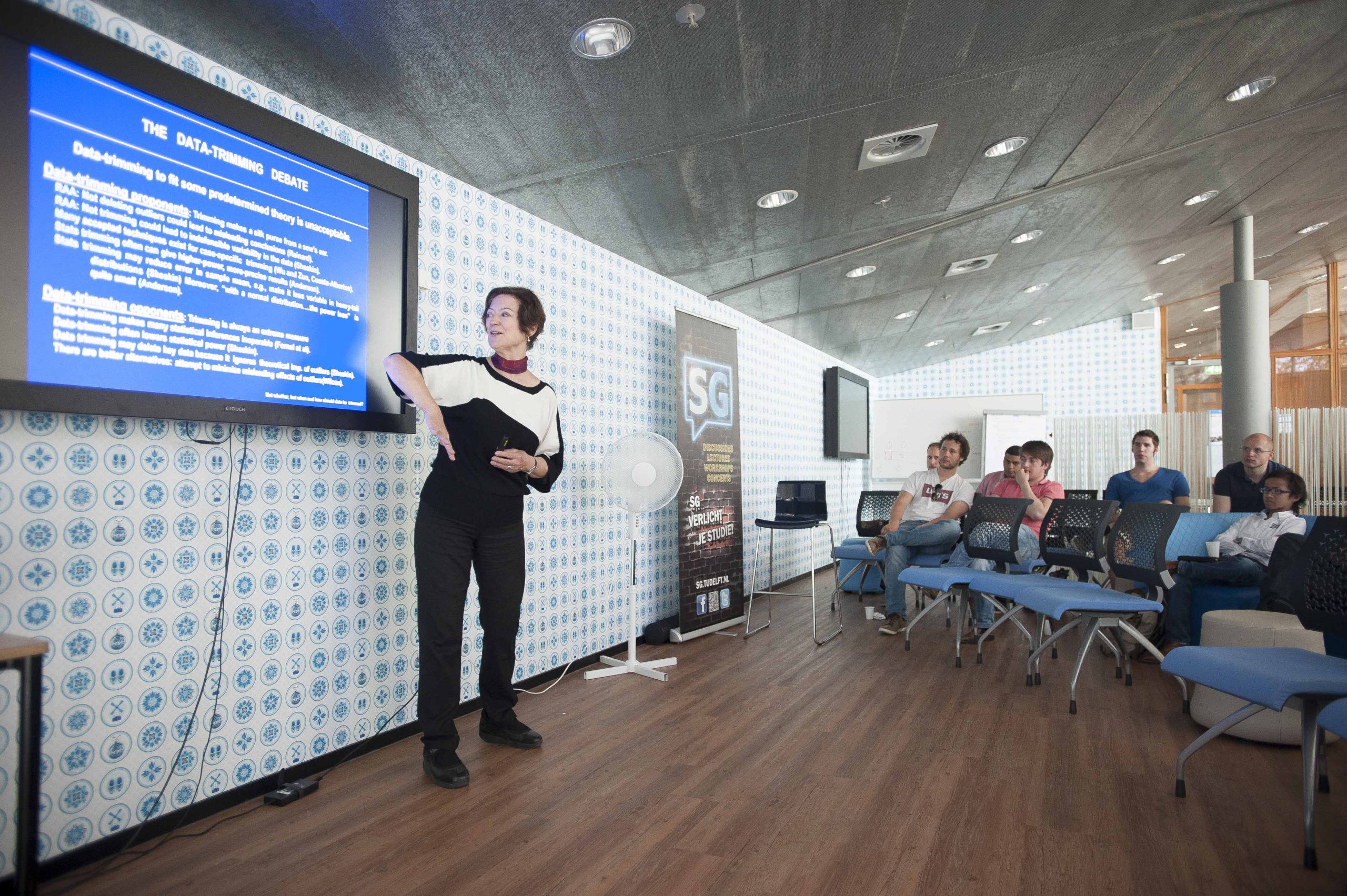The lecture by Dr. Kristin Shrader-Frechette on data trimming had an unexpected turn when questions were asked.
It’s ironic to see someone, who propagates freedom of scientific enquiry and open debate, ordering people in the audience to shut up and reserve their annoying questions for later.
And yet, that’s exactly what happened when Dr. Kirstin Shrader-Frechetter, Professor in Philosophy and Biology at the University of Notre Dame, Indiana, got irritated over questions from the audience.
The topic of her guest lecture, organized by Studium Generale and the department of philosophy at TPM, was cooking and trimming of scientific data the legitimate way. She argued that there are five agreed criteria for cleaning up scientific data: only extreme erroneous data may be taken out, outliers that influence the mean also, trimming should be done symmetrically, trimming should be documented and evaluated and, lastly, trimming should be communicated.
She illustrated her case by the trimming of data by the British climate scientist Dr. Phil Jones which led to the infamous Climate Gate in 2010. E-mail communication of Jones referring to climate scientist Michael Mann (known from the hockey stick graph) and containing words as “trick” and “hide decline” got hacked and was used to bring Jones, as well as all climate researchers, into discredit. Funded activists made it look as if global warming was a conspiracy.
When someone from the public questioned the alleged scientific consensus on climate change since 1993, Dr. Shrader-Frechette leashed out saying she didn’t want to discuss with someone who didn’t agree with established scientific institutions. No further questions allowed from this gentleman. Another member of the audience, who questioned Jones’ data doctoring with reference to Shrader-Frechette’s own criteria, was treated in a similar fashion (and walked out shortly afterwards).
Dr. Shrader-Frechette’s sharp attitude seems to be honed by the US research environment where one has to battle to publish one’s results if these are contrary to industrial interests. She estimates that half of the scientist who do environmental research have been harassed by pressure groups or activists that are funded by industries that feel their interests are under pressure. Infamous examples that Shrader- Frechette cited are the afore mentioned Dr. Michael Mann, who effectively retreated scientifically after industry-lobby attacks, and Herbert Needleman who in 1979 drew the attention to the health risks of leaded gasoline.
The lecture made clear that although scientists may someday reach agreement over allowed treatment of data, their results will remain controversial as soon as they go against vested interests. The larger the interests, the dirtier the war. It’s this battleground where Dr. Shrader- Frechette may have learned her debating techniques.



Comments are closed.